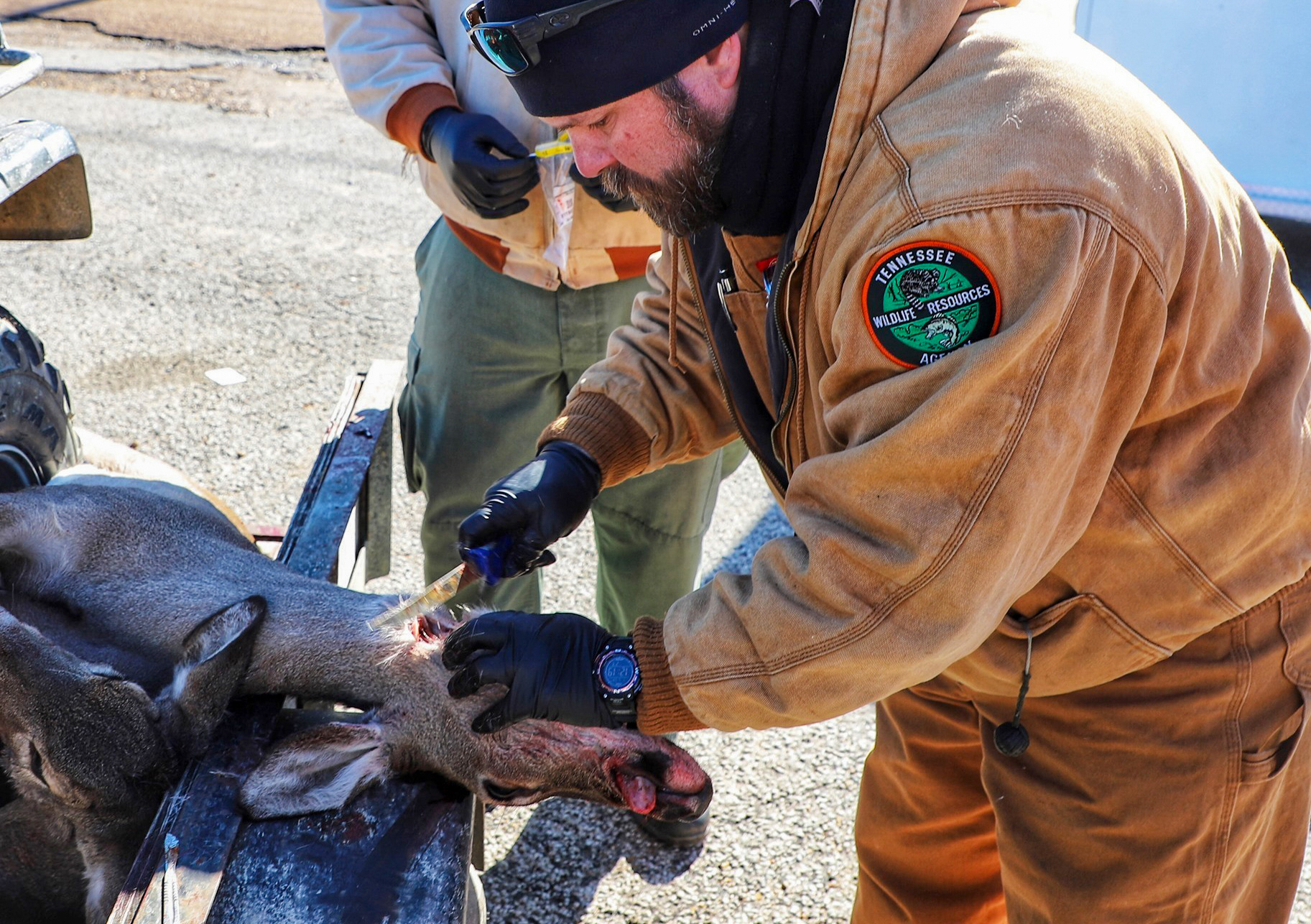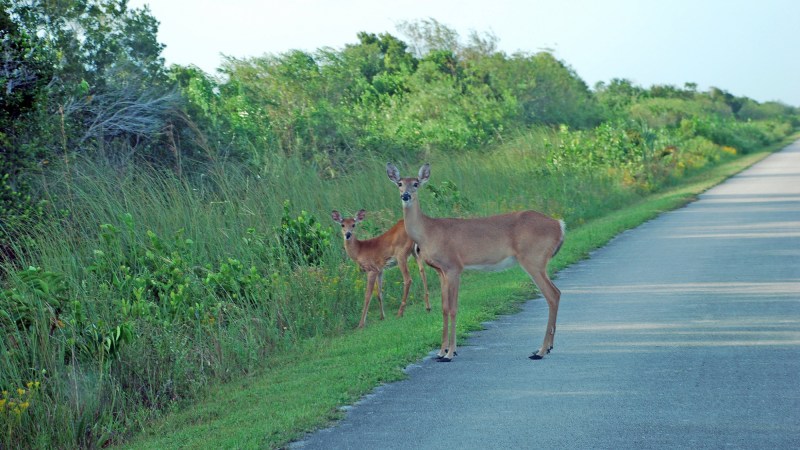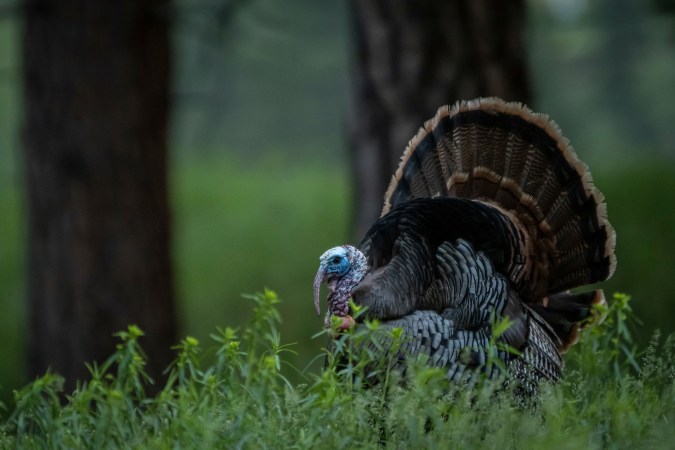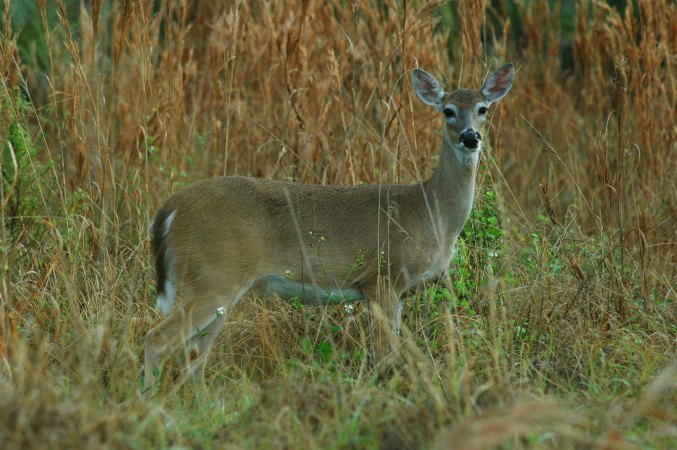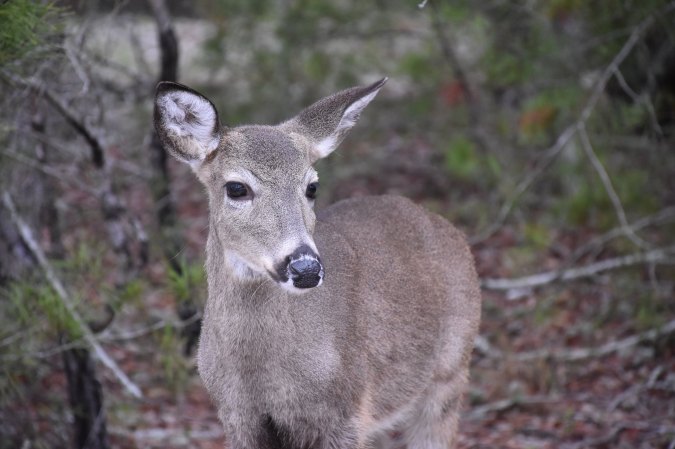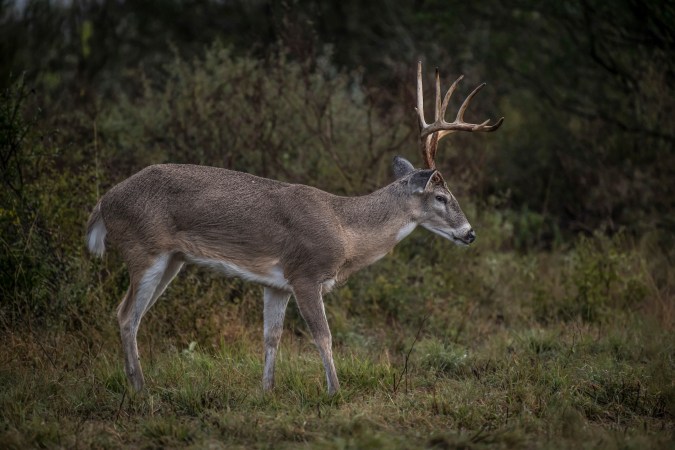A whistleblower lawsuit filed in Tennessee this month includes some stunning accusations regarding the state’s handling of chronic wasting disease. The lawsuit accuses the Tennessee Wildlife Resources Agency of over-reporting the number of CWD cases in the state, and then manipulating its data and changing protocols to cover up its mistakes.
The lawsuit hinges on deer biologist James Kelly’s allegation that he was wrongly fired after he found discrepancies in TWRA’s CWD data and learned that the agency had subsequently and intentionally misled the public regarding the prevalence of the disease. He claims that his investigation revealed that the agency failed to follow the best scientific practices when testing for CWD, which led to an inflation of CWD prevalence in several counties. He also claims the TWRA changed its own testing regulations in order to hide these mistakes from the public, rather than owning up to them.
If the plaintiff’s allegations are true, it’s possible CWD-positive deer or deer parts could have been legally transported to counties that were actually CWD-free.
Kelly was terminated from the agency in 2022. Kelly and his attorney William Caldwell filed the lawsuit in U.S. District Court on Sept. 1. It names the TWRA and TWRA’s executive director Jason Maxedon as defendants. TennesseeLookout.com broke the story of the lawsuit yesterday.
“During his employment with the TWRA, [Kelly] reported and was asked by his supervisors to investigate discrepancies in diagnostic lab results. Mr. Kelly’s investigation revealed to the TWRA that these discrepancies were in fact erroneously reported to the public as new detections of CWD,” Caldwell writes in the lawsuit. (Caldwell did not respond to requests for comment.) “The TWRA had the opportunity to explain and correct the errors. However, it chose not to. Its decision violated its Rules and Regulations and deliberately defrauded the public.”
Kelly’s suit alleges that, after voicing his concerns to the Tennessee Fish and Wildlife Commission and refusing to stay silent on the matter, he was interrogated by law enforcement in his own home. Kelly says he was fired in October 2022 after he “refused to participate in and and refused to remain silent about TWRA activities” related to CWD testing.
“TWRA’s testing protocols were established based on extensive vetting of the latest peer-reviewed research,” Emily Buck, TWRA’s director of communications and outreach, tells Outdoor Life, adding that the agency can’t comment on pending and active litigation. “Last year was the first deer season since the discovery of CWD in Tennessee there was not a spread of the disease to new counties, which we believe is a positive indicator that current management protocols are working.”
Discrepancies in the Data
Kelly’s tenure with the TWRA began in 2016, according to both the lawsuit and his LinkedIn profile. As the agency’s deer management program leader, he helped develop the state’s first risk-based CWD surveillance plan. Although the state had been looking for the disease since 2002, it would increase its surveillance in late 2016 due to positive CWD tests in neighboring Arkansas. In December 2018, Tennessee recorded its first-ever cases of CWD in 10 hunter-harvested whitetail deer from Hardeman and Fayette counties in the southwest corner of the state.
After recording the 10 positive cases, the TWRA immediately established a CWD management unit that encompassed Hardeman, Fayette, and 10 other surrounding counties. The agency extended the state’s deer season in that unit to bring in more samples and set up mandatory check stations that resulted in an estimated 3,100 samples over the course of the 2018 season. TWRA officials recorded a total of 186 CWD-positive deer—all but one of which came from Fayette or Hardeman counties.
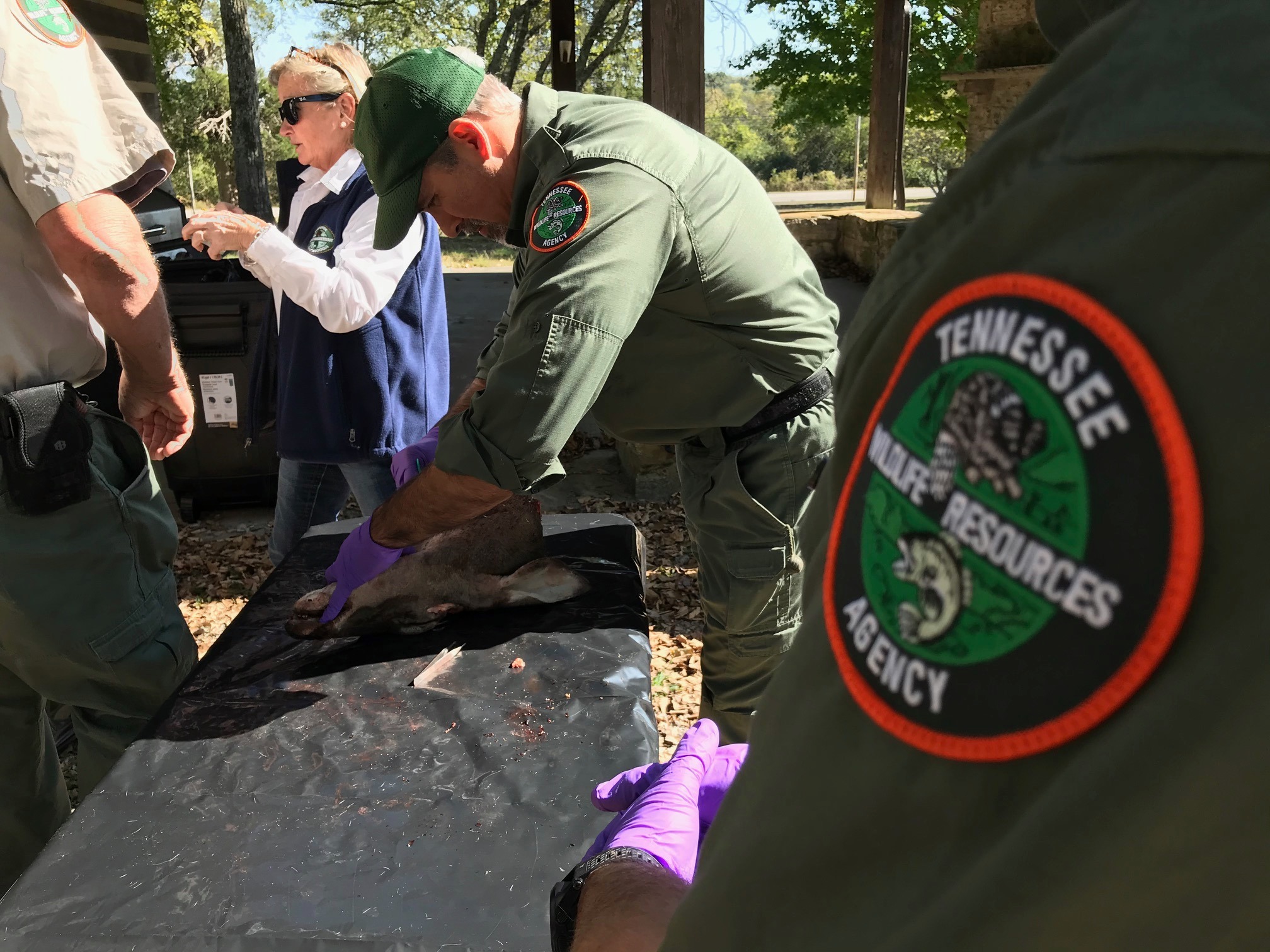
At that time, the lawsuit points out, the TWRA’s 2018 Emergency Response Plan called for two separate lab tests to confirm whether a sample was positive for CWD. If the first test came back positive, then the sample was screened using a second type of testing the USDA calls the “gold standard” of CWD tests. This test is more accurate and more costly.
Read Next: Zombie Deer Disease: CWD’s Unfortunate Nickname
According to the lawsuit, Kelly’s investigation revealed that in 2020 the agency had begun to stray from the two-test procedure after heeding the advice of TWRA wildlife veterinarian Dr. Dan Grove. And in 2021, the agency began sending off test results to a lab in Mississippi as well as the C.E. Kord Animal Health Diagnostic Lab in Tennessee. This is when many of the data discrepancies that Kelly noticed were recorded, he claims.
The closer Kelly looked, the lawsuit alleges, the more he saw that the agency’s lab testing protocols seemed inconsistent. Some counties had been deemed “CWD-positive” after the first test came back positive but before the follow-up test was performed. This meant the agency was labeling counties CWD-positive before those results could be confirmed.
In 2021 the number of CWD-positive cases in Tennessee had risen sharply. Kelly “suspected an error … too many counties were being added and way too fast,” according to the lawsuit. After Kelly shared his suspicions with TWRA, officials sent four positive samples for additional (and more reliable) testing. CWD was not detected in any of those four samples, according to the lawsuit. As a result, TWRA did not declare those counties in question as CWD-positive.
“In other words,” the suit alleges, “the TWRA had clear unequivocal evidence that it had falsely reported counties as confirmed positive for CWD.”
In March 2022, the lawsuit says, Kelly met with his supervisors and TWRA’s acting executive director Bobby Wilson. He hoped the results of his investigation would lead the agency to publicly announce the discrepancies in its data and redraw the state’s CWD map accordingly.
This never happened. And according to the lawsuit, Kelly was shot in a hunting accident on April 23, 2022. Wilson announced his retirement during Kelly’s recovery and Maxedon was appointed as the new executive director of TWRA. The agency also drafted a new testing protocol for CWD without consulting Kelly.
“Rather than respond to the discrepancies in CWD testing results by following its rules and protocols,” the lawsuit claims, “the TWRA changed the rules and protocols to avoid having to admit mistakes.”
Kelly alleges that in August 2022, he advised against adopting this new protocol but was told to drop the issue. In September, he wrote a memo to the Tennessee Fish and Wildlife Commission detailing his concerns and was immediately placed on discretionary leave with pay. Law enforcement officers also visited Kelly in his home, where he says they interrogated him and seized his phone and laptop. Over the following month, his lawsuit claims, TWRA did not investigate Kelly’s allegations. And on Oct. 17, Kelly received a termination letter from new executive director Maxedon.
Implications for CWD Management in Tennessee
Data from the 2023 Tennessee deer season showed 634 CWD-positive deer across 12 counties. (Much like in 2018, the majority of these positive results came from Hardeman and Fayette counties; only 52, or about 8 percent of positive tests, originated in other Tennessee counties.) There are currently 16 counties in Tennessee classified as “CWD-positive,” and 22 counties in the western third of the state are part of a larger CWD management zone. Regulations prohibit the transportation of certain deer parts between CWD management and non-management counties.
But if Kelly’s allegations hold any water, then these numbers might be inflated. Ironically, that could also increase the likelihood that hunters have brought CWD into counties where it didn’t previously exist. Since Tennessee allows free transfer of CWD-positive carcasses between CWD-positive counties—in fact, it requires those carcasses be disposed of in positive counties only—there’s a chance prions have traveled into counties that weren’t truly CWD-positive to begin with.
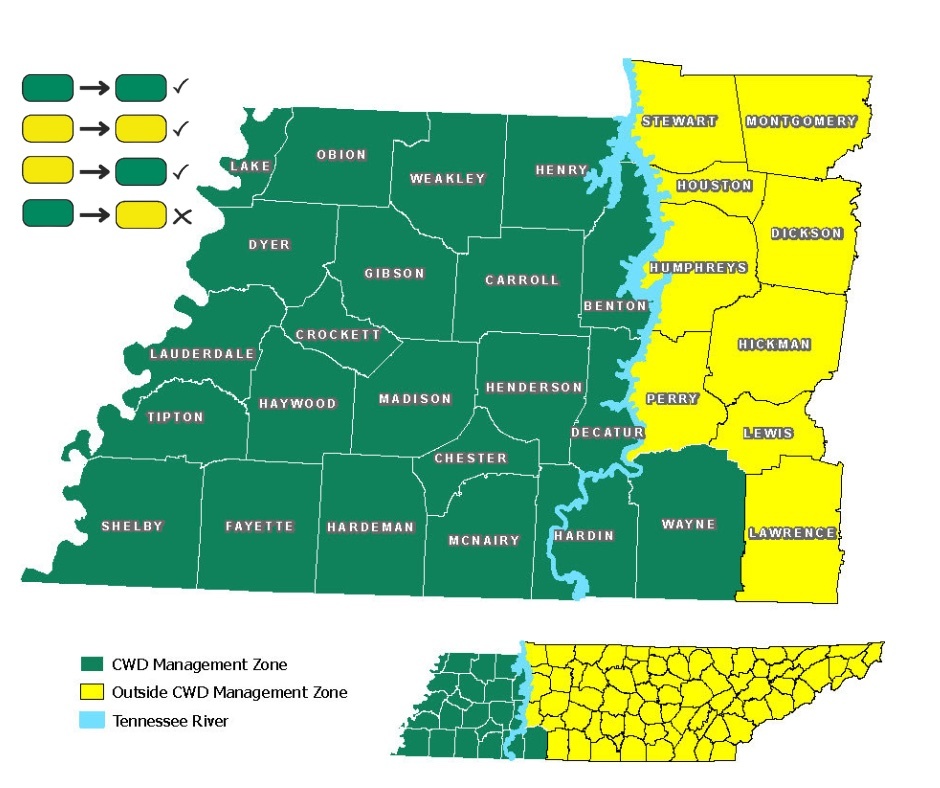
These larger effects also rippled beyond the state’s border. When TWRA declared Henry County as CWD-positive in September 2021, it triggered the Kentucky Department of Wildlife Resources to launch its own Emergency Response Plan against CWD. This happened even though the state has yet to record a CWD-positive case within its borders. (Of the seven states that border Kentucky, six are currently known to harbor CWD. The one exceptions is Indiana.)
“Based on the information provided by the TWRA, Kentucky Fish and Wildlife immediately activated its CWD Response Plan,” KDFW spokesperson Kevin Kelly tells Outdoor Life. “The plan for how to deal with a CWD detection in Kentucky or close to its border has been in place since 2002 and is updated periodically…Two years into the agency’s response, testing of thousands of tissue samples collected from deer in a five-county area of western Kentucky have not returned a positive detection of CWD.”
What This Means for Hunters
Kelly’s lawsuit is full of currently-unverified claims, however he doesn’t question the existence or severity of CWD as a problematic, contagious disease. Rather, he argues that TWRA mishandled both the testing process and interpreting and communicating the results. This might sow doubt among hunters in how agencies across the board handle CWD. But of the 44 state agencies that test for the disease, 32 of them use a second test to confirm results, National Deer Association chief communications director Lindsay Thomas, Jr. says. Testing strategies are constantly evolving to become more accurate, and they’ve come a long way already.
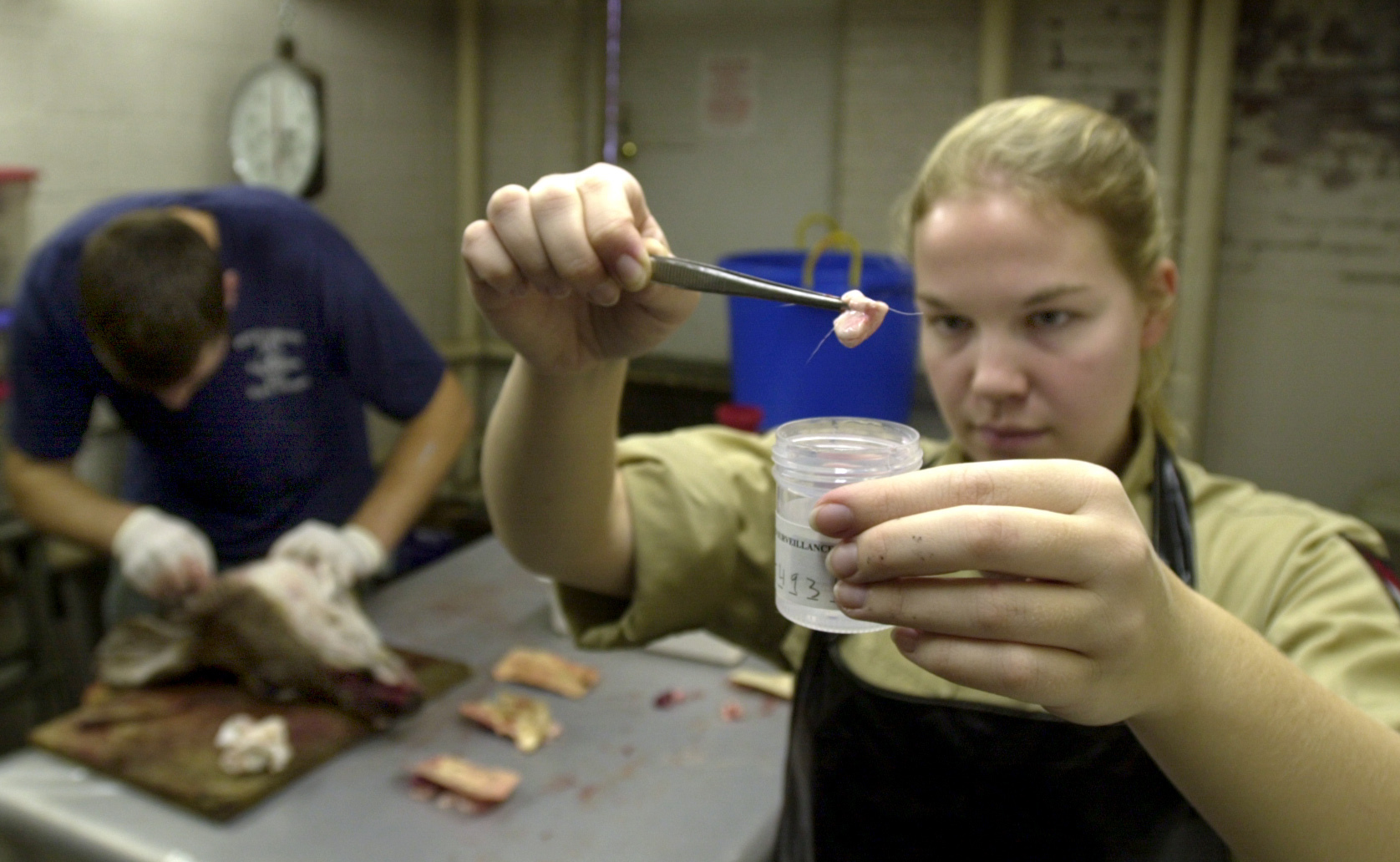
“Not only do we have confidence in the methods and management techniques they’re using, but the tests they’re using have been studied up one side and down the other for a number of years, and continue to be studied,” he tells Outdoor Life. “When I was at the [International Chronic Wasting Disease] Symposium in June, a lot of posters and presentations were delving into how to improve upon these methods. These systems are reliable and they’re getting more reliable all the time.”
It’s taken decades for agencies nationwide to build working relationships with hunters in their state in terms of CWD data collection, testing, information dissemination, and regulatory action. If these allegations trouble you, Thomas has a message for you: keep engaging on the issue.
“Hunters have a role to play here. When hunters and agencies see each other as opponents rather than allies, that doesn’t go well,” Thomas says. “I wouldn’t say we so much encourage hunters to ‘have faith’ or ‘put their trust’ in agencies. Rather, we say get plugged into your agency. Listen to them. Go to public hearings, sign up for their emails, follow them on social media. Get to know your local agency biologist—whether you’re in a CWD zone, whether you’re near one, whether you might hunt in one, or whether you’re as far from CWD as some of us are fortunate enough to be.”
Kelly could not be reached for comment. The TWRA has not filed a legal response, court documents show, and a hearing date for the lawsuit has not yet been scheduled.

